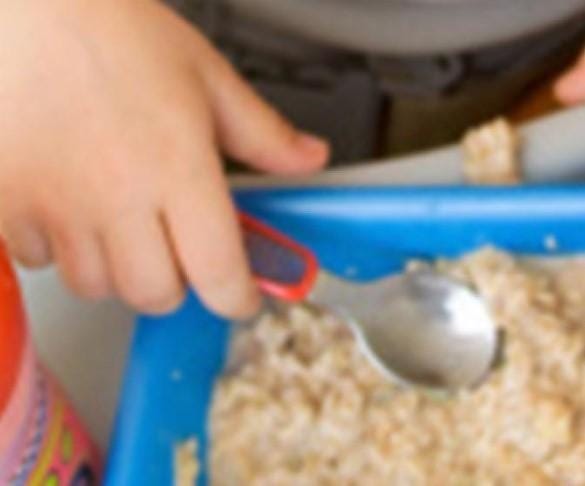

What's in This Article
- Your baby cries or is fussy.
- They put their fingers or first in their mouth, or suck on their fingers.
- Your little one opens their mouth wide when touched on his chin or lips and roots for a nipple.
- They squirm or move their arms and legs.
- Your baby moves, licks or smacks his lips or makes small sounds.
Knowing When to Feed
Your Toddler wants to be heard. Expressing their desire to eat and having you respond is important to their social and emotional development. Listen to their Toddler feeding cues and accommodate them best as possible, but don’t let them make the rules. At this stage, parents and caregivers should establish a regular routine of meals and snacks, observing your child's hunger and fullness cues at each occasion.
Toddler hunger cues:
- Resorts to crying, fussiness, banging toys and temper tantrums if hunger takes over.
- Your Toddler's sounds, words and hand gestures are ways to get your attention and say, “I’m hungry."
- Enthusiastically reaches for food wanting to feed themselves.
- Expresses desire for specific foods with words or gestures.
Recognizing When They Are Full
Being independent means letting you know very clearly that they are done eating and want to move on. Using their fullness cues when they are done eating, your Toddler will shift gears, becoming uninterested in food from one bite to the next. It’s your little one's way of making decisions and taking control.
Toddler fullness cues:
- Turns away or shakes their head to say, “no more” or “all done."
- Playing with or throwing food means mealtime is over. It’s playtime!
- Covers their mouth or face with their hands.
- May cross arms to show refusal of more food.
- Chewing slows down and their attention is off somewhere else.
- May spit out foods that they usually like.
Our Best-Selling Allergy-Friendly Formula
Products to keep your newborn full and happy
-
CLP Certified
 Gift cardPregnancyFor MomNewborn0-4 monthsSupported Sitter4-6 monthsSitter6-8 months
Gift cardPregnancyFor MomNewborn0-4 monthsSupported Sitter4-6 monthsSitter6-8 months*Gift cards are sent to recipient within 2 hours of ordering .gift_description{ font-size: 12px;} .accent-color { color: #1e4566;} .pdp-top-wrapper .product-info-main .product-options-wrapper { margin: -24px 0 24px !important;} @media screen and (min-width: 768px) { .pdp-top-wrapper .product-info-main .product-options-wrapper { margin: -24px 0 24px !important;} .gift_description{ margin-left: 1%;} }
From $10.001




